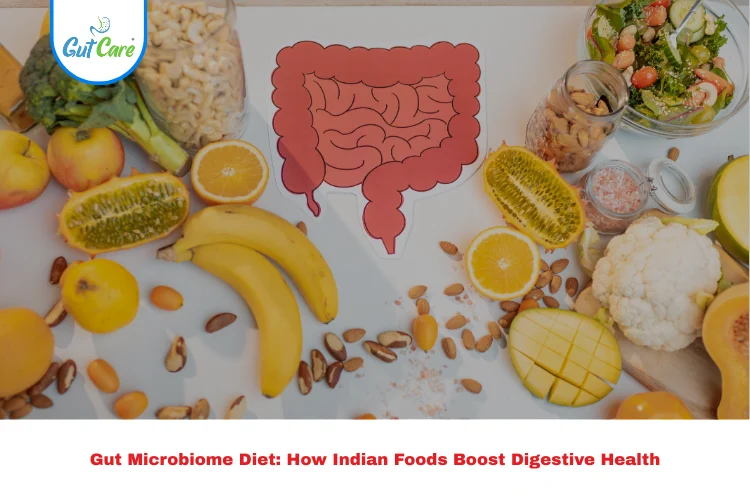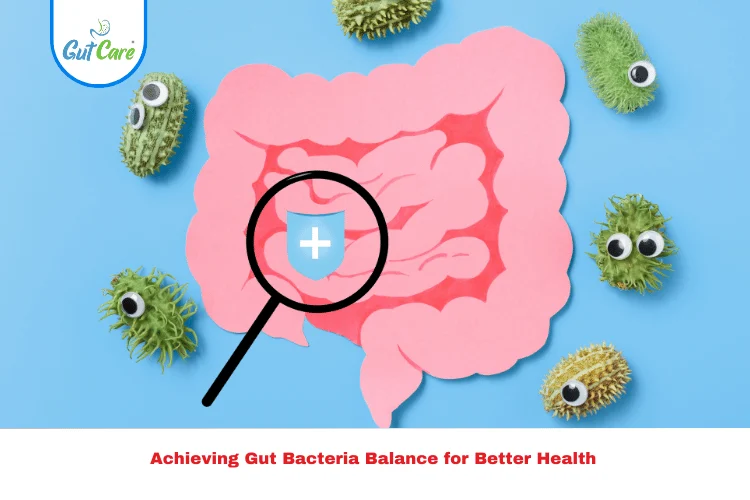The gut is more than just a digestive organ—it’s a thriving ecosystem that shapes our health, immunity, and even mood. In recent years, the gut microbiome diet has gained attention for its role in balancing this ecosystem. Across India, where diets shift dramatically from north to south and east to west, the microbiome tells a story of diversity, tradition, and health. At Gutcare Clinics in Bangalore, specialists like Dr. Yuvrajsingh Gehlot are helping people understand how everyday food choices impact gut health and long-term wellness.
What is the Gut Microbiome?
The gut microbiome is a collection of trillions of bacteria, fungi, and microbes living in our digestive system. These microbes:
- Help break down complex foods.
- Produce essential vitamins like B12 and K.
- Train our immune system.
- Influence metabolism and even mental health.
When balanced, they support overall wellness. But disruptions—caused by poor diet, stress, or antibiotics—can lead to issues like bloating, acidity, constipation, or even chronic diseases.
The Gut Microbiome Diet: Why It Matters
A gut microbiome diet isn’t about restriction. Instead, it focuses on variety, fiber, and fermented foods that fuel beneficial bacteria. Think of it as a lifestyle where food becomes medicine. This approach is particularly relevant in India, where traditional diets already contain many gut microbiome foods like curd, buttermilk, pickles, lentils, and seasonal vegetables.
Key benefits include:
- Improved digestion and nutrient absorption.
- Reduced inflammation.
- Stronger immunity.
- Better energy levels and mood balance.
India’s Diverse Diets and the Microbiome
India’s food culture is vast and region-specific. Let’s look at how different diets support gut health:
1. North Indian Diet
Rich in whole wheat, pulses, and dairy, this diet naturally supports the microbiome. Homemade pickles, curd, and lassi act as probiotics, while lentils provide prebiotic fiber.
2. South Indian Diet
Fermented foods dominate here—idli, dosa, and appam are natural sources of probiotics. Coconut, curry leaves, and tamarind add antioxidants that further support gut health.
3. Eastern Indian Diet
Rice, fish, and leafy greens form the core. Fermented fish and rice preparations, like pakhala bhata in Odisha, strengthen microbial diversity.
4. Western Indian Diet
From Gujarat’s khichdi to Maharashtra’s fermented rice (panta bhaat), fiber-rich and probiotic-rich foods are abundant. Bajra and jowar are prebiotic grains that keep digestion strong.
This regional variety shows how traditional foods act as natural gut microbiome foods, supporting health in unique ways.
Gut Cleanse Diet: Resetting the System
Sometimes, the gut needs a reset. A gut cleanse diet isn’t about extreme fasting but rather a short-term plan to give digestion a break and encourage microbial balance. It often includes:
- Warm water with lemon in the morning.
- Fresh fruits like papaya, banana, and pomegranate.
- Cooked vegetables and light soups.
- Probiotics like curd or kefir.
- Adequate hydration with herbal teas.
Practical Gut Microbiome Foods for Daily Life
To maintain a healthy gut microbiome diet, you can easily add these to your meals:
- Curd or Yogurt – Natural probiotics.
- Pickles (fermented naturally) – Encourage microbial diversity.
- Whole grains – Brown rice, millets, oats for fiber.
- Legumes and pulses – Chickpeas, moong, masoor dal.
- Seasonal fruits – Apples, bananas, guava, and mangoes.
- Vegetables – Spinach, pumpkin, beans, carrots.
These foods are accessible, affordable, and part of India’s food heritage.
When to See a Doctor
While diet plays a central role, some gut issues may require medical help. If you experience persistent bloating, unexplained weight changes, chronic constipation, or blood in stool, consult a specialist immediately.
At Gutcare Clinics in Bangalore, Dr. Yuvrajsingh Gehlot and his team specialize in diagnosing gut-related problems and tailoring treatment plans that combine diet, medicine, and lifestyle changes.
Conclusion
The gut microbiome diet is not a fad—it’s a return to balance, tradition, and mindful eating. India’s diverse diets already hold the key to strong gut health, but personalization is essential. By embracing gut microbiome foods, considering short-term gut cleanse diets when needed, and consulting experts for persistent issues, you can keep your digestive system thriving.
Every bite truly tells a story—make sure yours supports health and longevity. And if symptoms persist, don’t hesitate to seek professional advice from trusted centers like Gutcare Clinics, Bangalore.
FAQs
1. What is a gut microbiome diet and how does it work?
A gut microbiome diet focuses on foods rich in fiber, probiotics, and antioxidants to promote good bacteria in the gut. It works by balancing microbial diversity, improving digestion, and boosting immunity.
2. What are some Indian gut microbiome foods I can eat daily?
Common Indian gut microbiome foods include curd, buttermilk, idli, dosa, lentils, whole grains, and naturally fermented pickles. These support healthy digestion and microbial growth.
3. Is a gut cleanse diet safe for everyone?
A gut cleanse diet can help reset digestion, but it should be done under medical supervision. People with severe gut issues or chronic conditions must consult a doctor before trying it.
4. How can Gutcare Clinics in Bangalore help with gut health?
At Gutcare Clinics, Dr. Yuvrajsingh Gehlot provides expert guidance on gut-related problems. From dietary plans to advanced treatments, the clinic focuses on holistic gut care tailored to individual needs.
5. Can the gut microbiome affect mental health?
Yes. Research shows that the gut-brain axis connects digestion and mental well-being. A balanced gut microbiome diet can improve mood, reduce stress, and support overall mental health.




